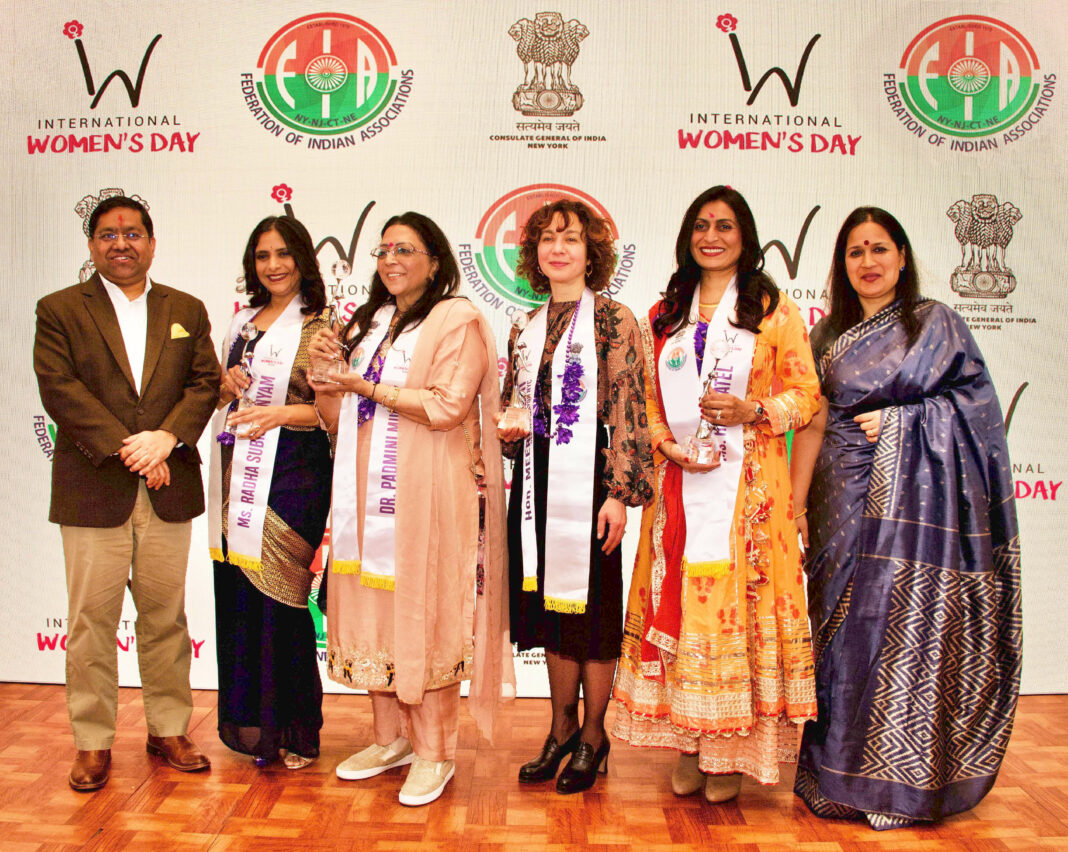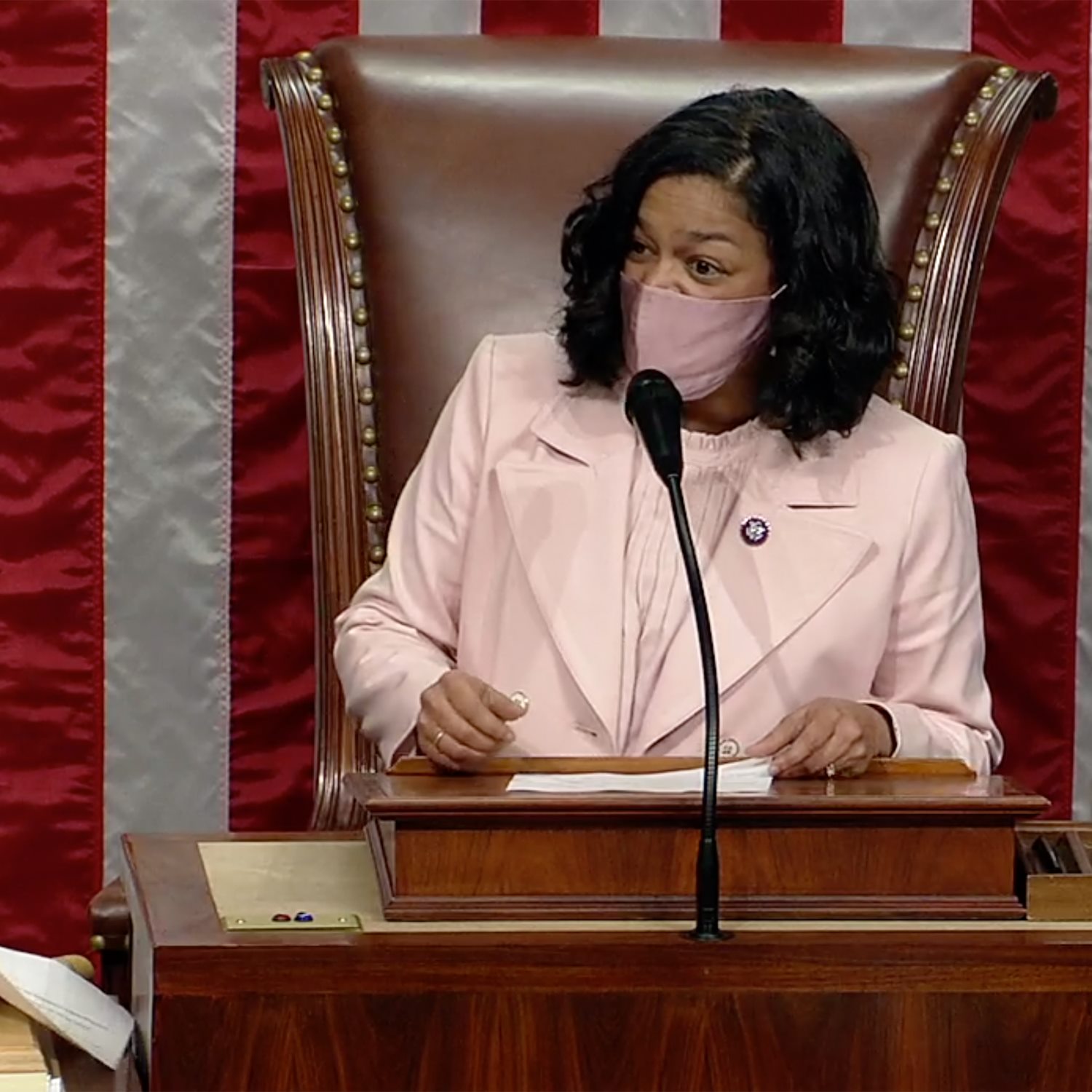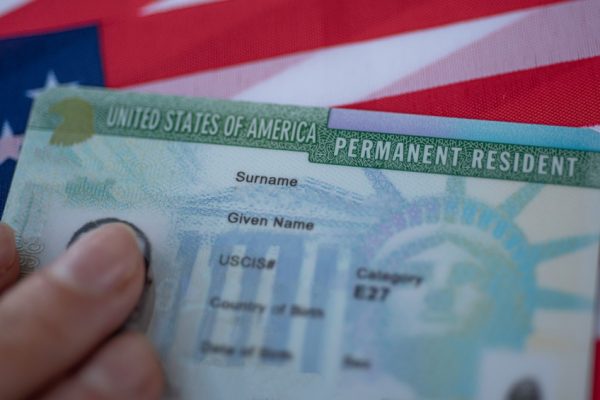Exclusive Interview with Penpa Tsering
Penpa Tsering is Sikyong, (president) of the Central Tibetan Administration based in Dharamshala, India. Tsering visited São Paulo on October 1st and 2nd, 2023, as part of his trip to Latin America, during which he also travelled to Colombia and Mexico. Tsering, who was invited to Brazil by Tibet House Brasil, gave lectures on Tibetan philosophy, met with public authorities and people from civil society during his trip to Brazil. An experienced Tibetan politician who has held important positions in the Central Tibetan Administration over the years, Tsering has worked closely with His Holiness the Dalai Lama in various official positions besides serving as the Speaker of Tibetan Parliament based at Dharamshala in Himachal Pradesh.
During his trip to Brazil, Tsering spoke to The Indian Eye about his visit to Latin America, China’s Tibet policy and the future of the institution of Dalai Lama. Excerpts of the interview:
You are on your first visit to Sao Paulo and Brazil. What is the objective of your visit to Latin America?
His Holiness Dalai Lama has visited Latin America four times since his first visit in 1992. My predecessor Dr Lobsang Sangay had gone to Mexico once but he had not gone to other Latin American countries. When we had the last World Parliamentarians Convention in Washington, DC last June, there was quite a good representation from Latin America. One of our jobs is to reach out to international community but Latin America is one area where we have not been able to reach out too much because of the political situation in the region. But we also know that there are many followers of His Holiness in the region. So, religion and culture play an important role here but less so in political area because of the many countries’ relationship with the Chinese government. So, this time we decided to visit to see if there is any possibility or future of our advocacy in the region. We always have very limited resources – both human and financial. So, we have to see where we spend our money on. It should be effective and impactful. So, this time my visit is mostly to make an assessment of the situation here and to see if there will be space here – political space – for Tibet other than in the spheres of culture and religion. This is our main objective this time.
There are various Tibet support groups in many countries here. Are you going to meet such groups and what kind of conversation you will have with them?
This time we are visiting only Sao Paulo in Brazil and not going to Brasilia which is the political capital. Our office is located here since 2016. We also have to evaluate our future course of action in the region. There are very few Tibetans in Buddhist centers here. Mostly it is the locals who are in the board and who run these institutions. Only some masters are invited from time to time to preach. So, religiously and culturally, there is a lot of interest. There is a lot less political awareness about what is going on inside Tibet. Many countries like the US have now understood and learned the hard way to do business with China. Now, they are taking a firmer stand just like India is also taking a stronger stand. This is very important as China only understands strength and not weakness.
Now, Latin America has not been very favorable to the US because of their history and they are seeking investment from China. But, I think, they fail to understand the real intent of the Chinese government. It is not just investment they will pour in; they will send in a lot more people. Now, most of the countries are undergoing studies about how much the Chinese government is infiltrating into the political fabric or the social fabric of different nations. And in Latin America also they are quite deep. So, wherever we go we face a lot of pressure from the Chinese embassy not to meet with us. That depends on the political leaders in these countries. Many of the countries I have visited I met with foreign ministry officials but here it is a little bit difficult. This is my first visit to explore what can be done here now and, in the future, if it is any good to spend our time and energy in the region.
Besides Brazil you are also going to other countries…
I am not going to Costa Bica this time because of the Chinese pressure there. This time it is only Brazil, Colombia and Mexico, and from there I am going to the US because I promised my people that I will visit every Tibetan community two times in five years and we are spread across more than 25 countries. I am covering almost one-third of the areas that remain in North America this time and also spend five days in Washington DC. Next month, I am coming back for more work in Ottawa (Canada).

As the Sikyong, you have travelled to many countries and met foreign leaders. What kind of interest you see in the Tibetan Issue as the West now seems to be more focused on the Uyghurs than Tibetans?
Any situation whether it is to do with East Turkestan (Uyghurs) or Mongolia or Tibet does not remain the same all the time. I keep telling my Uyghur friends also that not everything will remain the same. It is not a competition between Tibetans and Uyghurs or Mongols or Hong Kongers or Taiwan as long as the perpetrators of the crime is the same. But that does not mean to say that the situation in Tibet has improved at all. I keep saying that we are dying a slow death. China is like a python strangling us slowly, killing us. What I mean by this is the cultural genocide that is happening with the Tibetan language where they have established colonial-style boarding schools. Of course, we are not against education or bilingual education but when the whole education is aimed at destroying the identity of the local population then it is a serious problem. If it continues for another 15-20 years, the whole new generation of Tibetans may not be able to speak their language, forget about Tibetan religion, etc.
The objective of the Chinese government with regard to Tibetans, Mongols, Uyghurs or any others is to change them into Chinese. All the rules and regulations that are being amended are pointing towards this. Now China has become a hot topic around the world. People are understanding China or just beginning to understand China. The US understands China very well. Europe is just waking up. Eastern countries like Japan say they started diversification since 2018. Europe only started after the Ukraine war. So, all this dynamism is adding to understanding China more, and we are one source of information on China.
I have been a Speaker of Tibetan parliament and travelled to several countries as the Speaker. Compare to that time and now, people are willing to listen to our perspective. We have been talking about us for the past 30-40 years but nobody was listening. Now in Europe, the general impression is that Russia is the immediate threat but the long-term challenge is definitely China. The problem with Europe is that they do not have very unified foreign policy. It is the same policy that the colonialists used to play against the colonies that the Chinese are playing against them – divide and rule, carrot and stick – because they are not united in their response. So, the Europeans are really waking up.
Post zero-Covid, you saw Anthony Blinken, John Kerry, Gina Raimondo and Janet Yellen all going to China. China has become the Mecca and you have a lot of American leaders going there. Europeans too. But underlying all these communications is the desire for an unwanted event not to happen. At the same time North America and Europe are very conscious that they cannot make China more powerful. So now you look at the policies — despite all the diplomatic and trade relations — it has sunk in that China is responsible for all the belligerent activities in the region. China does not realize that they are making the western countries more powerful and they are responsible for all the neighboring countries spending more on defense – from Japan to Taiwan and even Australia. Where do you buy all the weapons from? You buy from the US and Europe and you are making them stronger in defense production. China, on one hand, needs the European market and the Southeast Asian market and yet they do not want the free world to come into the region to impact on their hegemonistic ambition. All this is bringing a lot attention to China. Now it is for China to respond to it they want to change because Xi Jinping, since he came to his third term, has been trumpeting the fact that his party has proved that economic development can happen. But the Chinese Communist Party leaders can understand only one language: economy. Nothing else. That is why they fail to understand the aspiration of the people. They are devoid of spirituality for several decades. That is why His Holiness talks of the Middle Way where we can economically gain from China and the Chinese people, who are more than 250 million Buddhists, can gain from Tibetans. And if the Sino-Tibet conflict is resolved then there can be better relations between India and China because one thorn in the relations in the form of His Holiness and Tibetans living in India will no longer be there and China does not need to pursue the same policies as they did with Pakistan as all-weather friendship where they supply missiles and technology to Pakistan. So, if all this can be reconfigured post resolution of the Sino-Tibet conflict, it can bring more peace and stability in the entire region. In the Shanghai Cooperation Organization meetings also, they are talking about south-south cooperation but without trust how can you build on these relationships.

India and China are members of many multilateral organizations like Brics, SCO but they never directly talk about Tibet…
When it comes to Tibet, His Holiness used to be asked about it and he would say India was over cautious. Now I would say we can remove “over” but they are still cautious because you have this proximity of border which the US doesn’t have. Japan has the maritime border with China. The countries which have a land border or maritime border with China are obviously more cautious because it can trigger anything. How India responds to all this depends on how China deals with India. When it comes to the US, the Chinese say they are not treated as equal. But does China treat every other country as equal, including India. They never did.
When a country becomes powerful it is confident of talking difficult questions. Do you see any willingness on part of China to talk about such questions through backchannels or directly?
Right now, under President Xi Jinping, it has become even more difficult. You can see all the developments in Hong Kong with the security law and in Eastern Turkestan with concentration camps and in Tibet with colonial-style boarding schools. It is not pointing to more freedom or liberalism or a willingness or political conviction to resolve the Sino-Tibet issue. We do have some backchannels and they are showing some interests but their interest is not based on equal terms. They are mostly dictating their terms whether it is the US government or any other government. With the Tibetans also they do the same thing. Right now, the way the Chinese government is dealing with their domestic issues, it does not look very promising that they are ready to resolve the vexed issues. Right now, there are changes in China which are not opaque like the removal of the foreign minister Qin Gang who, I think, became too much of a wolf-warrior. That is why they brought back Wang Yi. The same with the defense minister Li Shangfu who was also appointed by Xi Jinping. Then you have two leaders of rocket forces who were appointed by Xi.
You think some kind of purge is going on in China?
This may not be against Xi Jinping per se but he will have to respond to the international community as now there are so many engagements this year. They are already looking at Xi-Biden summit in November this year; Wang Yi already had a meeting with Jake Sullivan. So, when you have all these developments the wolf-warrior diplomacy, which Xi Jinping might have thought as a good thing then to intimidate the US, is not working right now. So, it is better to remove these people. Li Shangfu had no access to other countries because the US had sanctioned him. I think his removal is less to do with corruption and more about their attitude towards the international community. But no one can say anything with certainty. It is more speculation than reality.
One difficult topic and question is the future of the institution of Dalai Lama. There is apprehension that when he is gone, the Chinese will try to appoint their own Dalai Lama. What kind of debate or discussion is going on within the CTA or the Tibetan community to prepare for the situation?
The Chinese government is more interested in the 15th Dalai Lama than in the living 14th Dalai Lama. They do not care about the 14th Dalai Lama. They have been preparing for the past 20 years for the demise of His Holiness and finding his reincarnation. That is why they even passed an order in 2007 to control all Living Buddhas. Within the diaspora community, there is not much of a debate as they consider it ominous to discuss such things. Now people talk about it as they are more realistic but generally you don’t talk about a lama’s death as it is considered inauspicious. Within the community there is only one document about His Holiness: that is the September 2011 document, which says that when he reaches the age of 90, he will take some decisions on his reincarnation. So far, His Holiness has talked about his reincarnation can even be a woman or can be a young person named even before his demise. So, all these possibilities are still open. His Holiness has not decided that he will be reborn or he will be reincarnated. Some of our friends in India believe it is a very wise decision as China can’t handle unpredictability. Once His Holiness decides and they know it, then they have the resources to spread their propaganda. But many Buddhist associations and governments are coming out with their resolutions. The US government has amended their Tibetan support policy act wherein they have included that His Holiness alone should decide about his reincarnation. So, China will definitely try to appoint one person from their side and His Holiness has been very clear that he will be reborn only in a free country, in the free world which is not controlled by the Chinese leadership. Now, if there is a change in the situation in Tibet before His Holiness leaves this world then of course there could be a change.
But my message to the Chinese leadership is: have you not learned any lesson from the Panchen Lama saga? We do not know if the 11th Panchen Lama chosen by His Holiness is alive or not. He disappeared with his family and teachers and they appointed their own Panchen Lama but that boy is not respected by the Tibetans inside Tibet. To listen to him, to receive him, they have to pay money to Tibetans. He has no respect from the Tibetans. So even if the Chinese choose their own Dalai Lama, he will have no respect from the Tibetans inside Tibet and he will not be respected by anybody. It is the Buddhist associations who have more say in the reincarnation of Dalai Lama and not the Chinese government.

But the Central Tibetan Administration, as any government has protocols like blue book, we are also preparing to look at logistics and possibilities when that time happens. His Holiness keeps assuring us that he will live for another two decades or more. His knee is bad but his health is good. But issues about his health will keep coming up. That is why I keep telling our interlocutors (with the Chinese) that by the time the next Dalai Lama is born Xi Jinping will not be there. Who knows? When His Holiness talks about his long life, I joke with my Chinese friends that whether the Communist Party outlives the Dalai Lama or the Dalai Lama outlives the Communist Party. In the future, if you have two Dalai Lamas it is going to be a life-long problem. And then in the next 20-30 years, how much China is going to change we do not know.
Of late, China is also trying to project itself as a Buddhist country by hosting Buddhist conferences. Why do you think they are trying to achieve with that?
China likes to steal everything – from patents to religion. Buddha was born in India, Buddhism flourished in India and it spread to so many countries even before it reached China. For China to claim they have more than 250 million Buddhists — but not practicing, only in name – is just to take credit for the largest Buddhist community or leader of the Buddhist world led by a communist government that does not believe in religion is itself a paradox. They will use anything within their power to project as their own for whatever is beneficial for China. It need not be reality. Of course, it is not true that China has the largest Buddhist population or it is the leader of the Buddhist world.
Tibet House has been here since 2016 and has been very active. What message you would like to give to the Brazilian people about Tibetan culture, identity and politics?
Of course, we do realize that His Holiness has the largest following in Latin America. That shows there is interest in the message of peace and compassion and love which are essentially ancient Indian wisdom which we are carrying through. We are proud to say that we are repository of one part of Indian wisdom. And if people value love and compassion and non-violence then it is a good sign that people want to follow it. Every religion has these values. His Holiness has always been saying that it is better for individuals to stick to their religion and have respect for other religions. You can study other religions. In Tibetan Buddhism, we don’t believe in spreading our religion or converting people to our religion. So, this is about individual choice.
His Holiness divides Buddhism into religion, philosophy and science. Buddhist science everyone can study and also His Holiness emphasis’ of SEE (social, emotional and ethical) learning is embraced in South America through the Emory University. In the US, more and more people are taking this kind of education which are very essential in the modern world where we are losing all kinds of ethics. More war, more violence is triggered by it.
On the political front, we are half the world away from each other and political relationship between Tibet and Latin America has not been there in the ancient times and they have just happened over the last 50-60 years. But as Buddhists, we also believe in interdependence and the world is also realizing the interdependent nature of our existence. So, the message of His Holiness and the ancient Indian wisdom is oneness of humanity. So, if we understand the concept of oneness of humanity then anybody who is suffering in any part of the world is the responsibility of the people in the free world because people in the free world can also have the same problem if they do not have the right leadership. We have to keep supporting each other. Today, it is Tibetan and other people suffering. Tomorrow it can be other people. So, if right-thinking people support the right-thinking people elsewhere, it could be a force against authoritarianism and dictatorship. Otherwise, they become too strong and then whole world is going to suffer – not just one country, not just Tibet. Brazil has to be very smart about investments from China. Please study the situation in Asia where China spent a lot of money in its Belt and Road initiatives and other investments, creating debt economies and if Brazil, Venezuela and other countries are asking for investments and they are not careful you can also land up in the same situation as Asian countries like Pakistan and Sri Lanka and Cambodia and others.
I think we have to be very smart and strategic in our approaches and also value the freedom that we so enjoy here like democracy and freedom – the freedom that you take for granted. It doesn’t exist in China particularly in regions like Tibet and Eastern Turkestan. It is the responsibility of the whole world to support it.
So, my message to the leaders in Latin America especially Brazil, which is the biggest country in the region and a middle power internationally, it has a lot of leverage to play. So, we have to make the governments who are not sticking to the basic freedom of their people the accountable. If that thinking goes the whole world is going to be suffering.


























